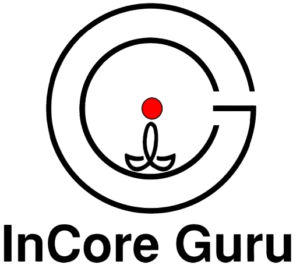- +91 8586 82 4525
- info@incoreguru.com
Tech Innovation / Innovation Strategy Consulting
Innovation Strategy Consulting helps organizations develop and implement strategies that drive innovation, enhance competitiveness, and sustain long-term growth. Consultants in this field work with businesses to identify opportunities for innovation, create actionable plans, and foster a culture of creativity and continuous improvement.

Innovation strategy consulting typically focuses on several key areas:
Before crafting an innovation strategy, consultants often perform an innovation audit to assess a company’s current capabilities, culture, and market position. This includes:
Analyzing existing processes and tools used for innovation.
Identifying gaps between current practices and the desired innovation goals.
Benchmarking the organization’s innovation maturity against industry leaders.
Example: A retail company might undergo an audit to assess how well they leverage digital technologies in customer experiences and supply chain efficiency compared to competitors.
Once the audit is complete, consultants help the organization develop a systematic innovation framework that integrates with business operations. This framework includes:
Innovation governance structures to ensure that innovation projects receive the right resources and attention.
Idea management processes for capturing, evaluating, and prioritizing innovative ideas.
Funding mechanisms for supporting high-potential innovation projects.
Partnership models for collaborating with startups, research institutions, or external innovators.
Example: A tech company may develop an internal innovation incubator where employees can pitch ideas for new products or services, with seed funding provided for the best ones.
Consultants work to embed innovation into the organizational culture by:
Training leaders and employees on innovation methodologies such as Design Thinking or Lean Startup.
Creating incentives and reward systems that encourage risk-taking and experimentation.
Implementing tools and platforms to facilitate collaboration, idea sharing, and rapid prototyping.
Example: A company could implement an annual innovation challenge, where teams compete to develop and pitch breakthrough ideas, with the winners receiving resources to further develop their concepts.
Consultants help companies identify emerging trends and technologies that could create new opportunities for innovation. This involves:
Market research and customer insights to understand shifting needs and preferences.
Competitive analysis to spot industry disruptions and potential threats.
Technology scanning to track advancements that can drive innovation, such as AI, IoT, blockchain, etc.
Example: A manufacturing firm might use this analysis to explore how Industry 4.0 technologies (e.g., smart factories, digital twins) could streamline production and improve efficiency.
Rather than relying solely on internal R&D, many organizations now practice open innovation by collaborating with external partners to accelerate innovation. Consultants help businesses:
Identify strategic partnerships with startups, universities, and research labs.
Facilitate co-creation sessions with customers, suppliers, and other stakeholders.
Build ecosystems of innovation partners to develop and test new solutions.
Example: A healthcare company might partner with startups in the health tech space to co-develop wearable devices or telemedicine platforms that improve patient outcomes.
To ensure a balanced approach to innovation, consultants help organizations manage their innovation portfolios by:
Balancing incremental, disruptive, and radical innovations in their project pipeline.
Allocating resources between core business improvements and exploratory ventures.
Assessing risk and return of innovation projects to maximize strategic impact.
Example: A consumer goods company may decide to focus 70% of its resources on optimizing existing products, 20% on adjacent innovations, and 10% on breakthrough products.


At Incore Guru, our aim is to help businesses in managing and create intellectual property (IP) and provide comprehensive IP solutions for every aspect of conducting business in the knowledge economy.
C165 Sarvodaya Enclave New Delhi 110017 INDIA
101 Tilak Path CMR Point #101 INDORE 452007 INDIA
